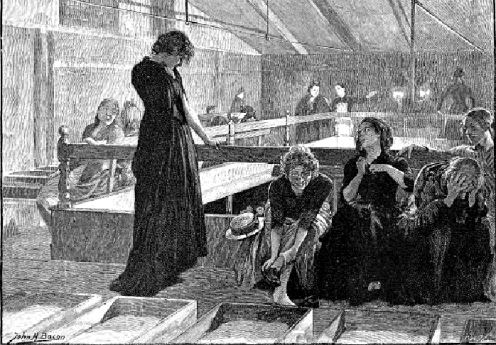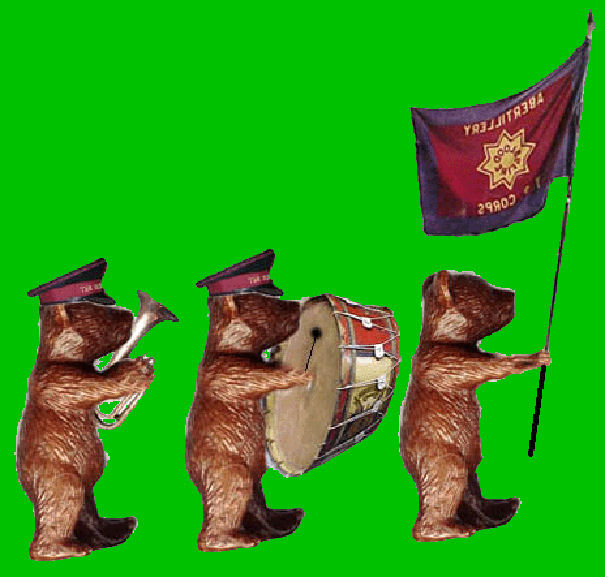Diary Dates
Ongoing – WW1 Exhibition in the Museum
Saturday 27th June – Coffee morning featuring a Salvation Army exhibition and the pleasure of the Salvation Army Band playing for us.
Saturday 4th July – Aberfest. The Museum will be joining in the activities, with a stall outside the Museum and refreshments inside.
Tuesday 18th August – Cream Tea Morning and music Price £2.50
September – ‘Now and Then’ illustrated talk; more details next month.
Raffle prizes needed!
If you have any items we can use for raffle prizes, please drop them off at the Museum.
Fundraising May - £147
May 100 Club
No. 11 Vera Smith £20
No. 4 Sue Smaile £10
No. 14 Val Sykes £5
Ralph Robinson Memorial Lecture
This event proved successful with a good turnout to hear David Maddox give an excellent talk on William Abraham, better known as ‘Mabon’ and a very influential figure in the early trade union movement in the coal mines of South Wales and in his role as a Member of Parliament. These were significant achievements for a man from humble origins.
Coffee Morning 27th June
Be sure to put this date in your diary. The Salvation Army Band is coming along to entertain us as part of the Salvation Army exhibition which is to be displayed in the museum, to mark the 150 years of work and history of the Salvation Army in Abertillery. Cakes and raffle prize donations would be much appreciated. £1 for entry, tea/coffee and cake.
Aberfest – Saturday 4th July
The museum will be playing its part in Aberfest on this day when, weather permitting, there will be a Bouncy Castle in the car park alongside the museum along with a museum stall. We will be serving drinks and cakes so if you can come along and help please contact Peggy Bearcroft at the museum. Donations of cakes would also be much appreciated.
Tuesday 18th August Morning Cream Tea
Another date for your diary and something different this time. We will be serving cream teas – strawberries and cream, and cream scones – and there will be music! Tell your friends. Price £2.50
Get Well Soon
Professor Gerwyn Griffiths, one of our Vice Presidents, has been is hospital but is now convalescing and we send our best wishes for a speedy return to full health.
Local Voices
‘Outbreak of WW2’
When war was declared in 1939, I was still at school but a relative of the family owned a cafe in Aberystwyth and while they were on holiday back in their home town of Abertillery in July or August 1939, they visited us and offered to let me go back to Aberystwyth with them and work in their cafe. I jumped at the chance and thoroughly enjoyed the experience of heating up pies by inserting the spout of the hot water urn into the pie, cleaning the tops of sauce bottles every morning, washing up etc. They did not trust me to cook any food!!!!!! I was loved and treated as one of the family. They took me to the cinema and little outings when the cafe was shut. However, I was aware of the build up of tension regarding the possibility of war and there was increased movement of soldiers in the town. On the day war was declared my parents thought it best if I returned home. They did not know what was to happen and anyway school was due to return. Ashamedly, I must admit I remember feeling really thrilled and excited. I had no idea what war really meant and I suppose the unknown sounded exciting. So I returned home laughing with troops on the train and thought war was going to be fun. The reality set in when some time afterwards news of bombings etc. were broadcast although Abertillery did not suffer like the big industrial cities.
The Roving Reporter
‘V.E. Day’
I don't really remember the build up that day of WW2 ending in Europe. I think the formal announcement must have come quite late in the day However, near midnight on that day our neighbour's daughter who was younger than I came to my house and suggested we go to the town to see what was going on. My parents were willing to let me go although it was close on midnight. I don't think youngsters were so vulnerable then. We went to the town which was about third of a mile away. What a mayhem, crowds of people, noise, laughter etc. Mr. Tom Gale a well known person in the town was the head of a radio system in the town called The Relay. The offices of this organisation were opposite what is now The Coffee Bean. Mr. Gale had opened his office windows and let the loudspeakers (or whatever the system was) to let the music out into the street. The Salvation Army Band played light and dance music. We danced and sang and generally had a fantastic time. The only thing missing which I remember thinking at the time was the lack of any refreshment. Probably the pubs were open but in those days respectable females did not frequent such places. I thought why did the fish shops not open? This was in the days before hot dogs...we would probably thought that was some sort of animal torture. We thought that rationing of food and clothes would be finished the next day and everything return to pre war Britain. How wrong we were but it was certainly a night to remember.
The Roving Reporter
‘Abertillery Library’
I have very fond memories of the old Abertillery Library, (I moved away from Abertillery before the new library was built). Who can forget that long narrow building with its huge wooden bookshelves, uneven floor and leaking roof. Wooden racks for library cards sat on the reception desk, the cards being colour coded for adult, child, fiction and non-fiction. I was always an avid reader but children (under 16?) could only take out one fiction and one non-fiction book at a time. I well remember the frustration in school holidays of quickly reading an exciting story and then having to wait until the next day to go back for another book – you weren’t allowed to take out another fiction book on the same day. The choice must have been good as I was always able to find a book that interested me, and the librarians were always very helpful in tracking down books that weren’t in the library’s stock. I still enjoy reading and it saddens me to hear of so many libraries closing.
Jen Price
‘Woolworths’
What shops do you remember from the days when Abertillery had a busy shopping centre. Woolworths was a firm favourite of mine. Wooden floors and open raised counters that sold just about everything. Remember the salted nut display at the front of the shop – delicious warm salted nuts served in greaseproof bags that weren’t actually very greaseproof. I recall that householdd goods were at the back of the shop and to the left as you went in . Far more interesting were the cosmetics and toiletries over on the right hand side. Amami styling lotion perhaps? Or ‘Evening in Paris’ perfume? And what about the jewellery section? This was the place to come for a birthday present for Mam. I remember buying my mother a brooch saying ‘mother’. She probably thought it was hideous but dutifully wore it regularly on one of her suits.
Jen Price
Poetry Corner
‘Three Golden Threads’
Like a swallow I’d fly and leave my love
Forgotten beyond the sea;
But with cruel threads that are garden-wove
She holdeth the heart of me.
One is her look and two her smile
And three is her mouth so red;
And I dare not strain for a single mile
Or tighten her threefold thread.
I would I might break their bonds and fly,
And so with my grief have done.
Ah, no! for these three I would sooner die
Than sever a single one.
Charles-Marie-Renee Leconte de Lisle, tr W. Thorley
Book Corner
I recently visited Hastings and the town of Battle which was where the Battle of Hastings actually took place, a few miles inland. Having visited the exhibition at Battle Abbey and walked around the battlefield itself with the help of an audio guide, I realised how little I knew about this period of the country’s history. I know I should read a ‘proper’ history book to give me the nitty gritty detail of the Norman Conquest and what life was like in those times but instead, for the moment at least, I chose a book of fiction – the ‘book of the month’ choice of the English Heritage Steward of Battle Abbey. It is called ‘Sworn Sword’ by James Aitcheson, a paperback costing £6.99. The subtitle is ‘1066: The Aftermath’ and I’m looking forward to reading it on holidays. I hope you enjoy it too.
Jen Price
The Nylons
Did you work at ‘The Nylons’? Do you have any memories to share about your time there? It was in 1947 that British Nylon Spinners built their factory at Mamhilad for the production of nylon yarn, and for research and development in man-made fibres. It was a major employer and attracted people from valley towns such as Abertillery. Many employees subsequently moved to Cwmbran New Town to be nearer their place of work. The factory was taken over by Imperial Chemical Industries in 1962 and the research facility was moved elsewhere leaving the extensive office buildings to be leased out for various purposes. The buildings were set in beautifully landscaped gardens, most of which are hidden from public view but which were a delight to those who worked there.
Ebbw Vale Steelworks
Iron was first produced in Ebbw Vale in about 1780. The town grew from modest beginnings to become a world leader in iron and steel production. By 1948 the steelworks at Ebbw Vale was producing 600,000 tons of rolled steel per year and was the largest steel mill in Europe. This was the time a merger produced Richard Thomas and Baldwin – RTB whose name is still familiar to many of us even though the ownership of the Ebbw Vale works changed several times as iron and steel making went through cycles of nationalisation and privatisation. The heyday was probably in the late 1960s when the works in and around Ebbw Vale employed 14,500 people. The plant was subsequently rationalised to specialise in tin plate manufacture and by the time it closed in 2002 the numbers employed there had fallen to 780. This was a fraction of those employed in the late 1960s but still represented a major source of employment in the area and its closure added to an already high local unemployment figure. The site is unrecognisable now. No glow in the evening sky above Abertillery and trees are once again growing on the side of the valley. The industrial sheds have been cleared and the site redeveloped with a range of new uses including a hospital although some former administrative buildings remain.
Semtex
Originally built in the late 1940s as the Brynmawr Rubber Factory it was intended for the manufacture of tyres. This venture failed and the iconic building was sold to Dunlop in 1952 for the manufacture of vinyl flooring known as Semtex. The unusual design of the building with its concrete arches led to it being listed but when no alternative use could be found for the building following its closure, it was demolished in 2001. The site was redeveloped for housing and shops.
Changes
The mines have gone, ‘The Nylons’ has gone and so have Ebbw Vale Steelworks and Semtex. Shops like Liptons and Woolworths have gone. The local landscape has changed dramatically. Who is recording and telling the story of these changes? Museums like ours! This is why we are so important to the local community. Please help by ensuring your membership is up to date (just £6 a year) and encouraging others to visit the museum, join the Museum Society, come to coffee mornings, and perhaps also give up a couple of hours a week to volunteer. We need your help.
MUSEUM MATTERS
Salvation Army UK 150th Anniversary
Abertillery Corp 132nd Anniversary.
In 1865, William Booth founded an Evangelical Christian movement in the East End of London. Originally known as the Christian Revival Association, it was renamed in 1870 to become the East London Christian Mission, subsequently shortened to the Christian Mission. The group was reorganised and renamed in 1878 to become the Salvation Army affectionately known as the "Sally Ann". The Army, with "General" Booth at its head, adopted a military-style uniform and "Articles of War" which included the renouncing of the use of alcohol. The Army also eschewed religious sacraments such as baptism and communion, considering them unnecessary.
Hanbury Street Women's Shelter
In addition to its religious crusading, the Army gradually became involved in a variety of social welfare activities. One of the earliest, in May 1884, was a women's refuge at 212 Hanbury Street in Whitechapel, opened as part of a campaign to rescue young women from prostitution. These extracts are from an 1891 account of a visit to the establishment give a flavour of its operation: As each woman entered she put her penny through the little hatchway to receive in return a big mugful of hot, strong, well-sweetened tea, with a huge slice of good bread spread with dripping. As they took their portion they all went into the large hall where the front ledge of the bench served as their table. Here they ate and drank, sewed, knitted, talked, waiting for the evening service. Surely this "rousing rollicking" service, with banjos, tambourines, loud shouting’s and untrained

gestures, is better than the flash songs of a penny gaff, or the obscene jokes and carols of a gin palace! It is hard to reclaim these fallen women while they are young and pretty, and their sorry "trade" gives them meat and drink and the coarse pleasures of the gin-shop and the streets, there are some who come over who regain their self-respect through their "conversion" and who, falling prone as outcast sinners, rise redeemed as penitent Magdalene’s. The rule of the Shelter is; bed at nine, rise at six, and all out by eight. Night after night the same poor old Goodies come in from the harsh world to rest in the friendly warmth of this Shelter. They do their little industries in the big hall, and knit trifles for the morrow's sale by which they are to secure their right to their board and lodging here. Attached to this woman's Shelter is a place for mothers and their babies ; and to supplement the "unwomanly rags" in which so many arrive, the Captain often organises a sale of old clothes, which, at least, are cleaner and more sufficing than those which these poor creatures are wearing. During the year, 58,636 persons were supplied with lodging, supper, and breakfast and 770 women were “assisted in their outward circumstances," such as the reconciliation of wives with husbands, and the restoration of girls to their parents.
Sleeping rough was, at this date, an offence under the 1824 Vagrancy Act. Although the police sometimes turned a blind eye to it, prosecutions were frequently brought. However, the offence of "wandering abroad" required that a person was "without visible means of subsistence" so it was common practice for vagrants to carry a penny in order to circumvent such a charge. It was to help this homeless population that the Army began operating night shelters and food depots, where basic food and shelter could be obtained for as little as a penny a night. As well as the cost being low, partakers were treated with kindness and respect, unlike the reception usually provided at the workhouse casual ward.
Abertillery Salvation Army Corp 132 years
The Salvation Army started in Abertillery in 1883. Their meetings were first held in rooms belonging to the old “Castle Hotel” at the bottom of Hill Street. A permanent hall was built on land at the top of Hill Street in 1885. The opening ceremony was performed by General Booth.
When the Salvation Army first started holding their meetings in Abertillery, they met in Church Street on a fine hot summer’s day. To attract and draw the crowds they first put up their umbrellas, they then proceeded to march backwards up the street. This caused a lot of interest in the locals who followed them to see what was going to happen. When they eventually stopped they began their open air meeting.
It is not surprising that they became affectionately known as “The Barmy Army”. The local miners thought highly of them and still do; they were the first on the scene of the Six Bells Colliery  Disaster handing out teas etc to the miners and the Mines Rescue Team. Today they continue their ministry with Street Pastors, food bank, the Salvation Army Charity Shop, over 60s, mums & tots providing help for the needy and much more.
Disaster handing out teas etc to the miners and the Mines Rescue Team. Today they continue their ministry with Street Pastors, food bank, the Salvation Army Charity Shop, over 60s, mums & tots providing help for the needy and much more.
Don Bearcroft Curator
